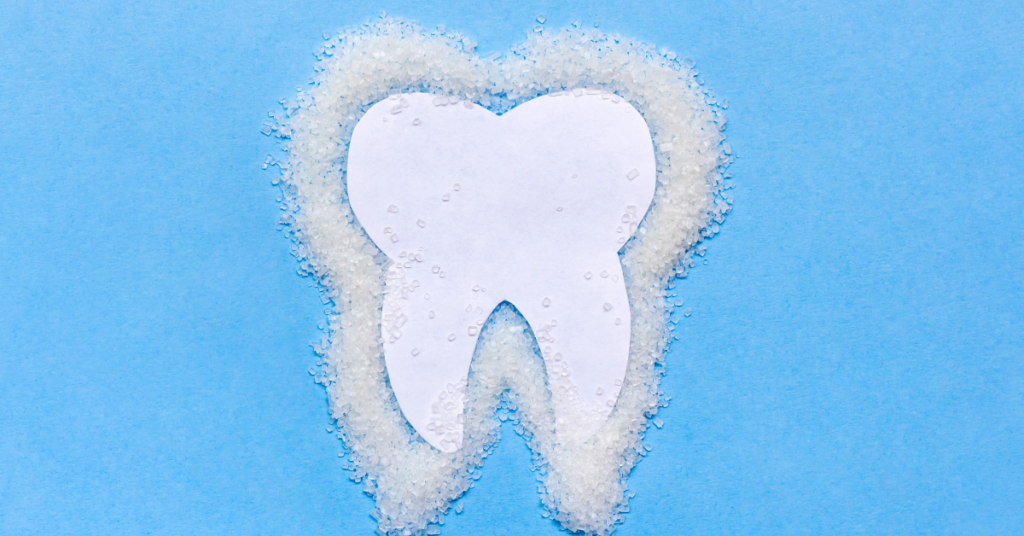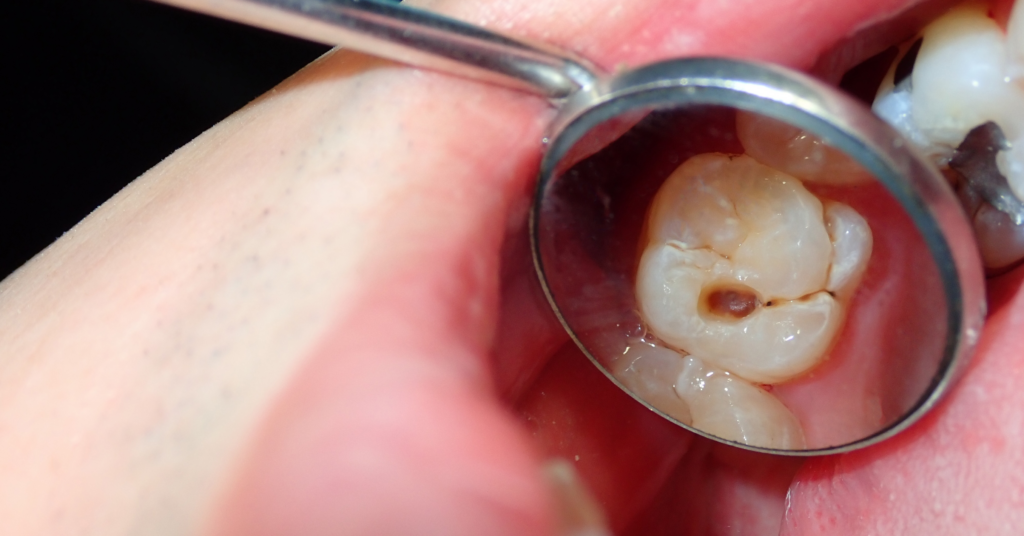What Does Sugar Do To Teeth?


Sugar is a type of carbohydrate that is commonly found in many foods and drinks. When sugar is consumed, it reacts with bacteria in the mouth to produce acid, which can erode the enamel (the protective outer layer) of the teeth. Over time, this can lead to cavities, tooth decay, and other oral health problems.
It is an essential part of our diet, providing the energy we need to get through the day. However, while sugar can be a great source of energy, it can also have a negative impact on our oral health, particularly our teeth.
Our teeth are constantly exposed to sugar, and the sugar reacts with bacteria in our mouth to produce acid, which can erode the enamel of our teeth and cause serious oral health problems, including cavities, tooth decay, and gum disease. In this article, we’ll delve into what sugar does to our teeth and how we can protect ourselves from the harmful effects of sugar.
Understanding the Factors that Determine the Effects of Sugar on Teeth


The effects of sugar on the teeth depend on several factors, including the frequency of sugar consumption, the amount consumed, and the type of food or drink. For example, hard candies and sugary drinks like soda are particularly harmful to the teeth because they are typically consumed over a longer period of time, increasing the exposure of the teeth to the acid produced by the bacteria.
How to Protect Your Teeth from the Effects of Sugar
To protect your teeth from the harmful effects of sugar, it is important to practice good oral hygiene and limit your sugar intake. Here are some tips:
- Brush your teeth twice a day or after every meal with a fluoride toothpaste. This will help to remove plaque and bacteria from your teeth and prevent cavities.
- Floss daily to remove food particles and plaque from between your teeth. For those who wear braces, maintaining oral hygiene becomes even more crucial. Delve into our article on Oral Hygiene For Braces to get comprehensive guidance.
- Optional use of a mouthwash to help kill bacteria and freshen your breath.
Limit your sugar intake, especially sugary drinks and snacks. If you do consume sugar, try to do so with a meal, as this will help to neutralize the acid produced by the bacteria in your mouth. Drink plenty of water to help rinse away sugar and food particles from your teeth.
The Long-Term Effects of Sugar on Teeth


Over time, repeated exposure of the teeth to sugar and acid can lead to serious oral health problems. For example:
- Cavities or Tooth Decay : When sugar reacts with bacteria in the mouth, it produces acid that can erode the enamel of the teeth and create holes in the teeth, called cavities. If left untreated, cavities can cause pain, sensitivity, and even tooth loss..
- Gum disease: The acid produced by the bacteria in the mouth can also damage the gums, leading to inflammation and infection. Over time, this can cause gum disease, which can cause tooth loss and other serious health problems. For those considering dental restorations, our guide on Dental Implants Benefits provides insight into why they might be an excellent choice.
How to Keep Your Smile Healthy and Sparkling for Years to Come
It’s simple as ABC.
A. Limit consumption of sugary or starch foods.
B. Practice good oral hygiene.
C. Schedule professional hygiene visits and have a dental examination regularly as recommended by your dentist .
By implementing a few simple steps into your daily oral routine, you can ensure that your teeth remain strong and cavity-free for years to come. Remember, prevention is key in both dental health and tree care! Start by limiting your consumption of sugary or starchy foods, as they can wreak havoc on your teeth. And if you’re contemplating tooth whitening options, learn more about No More Yellow Teeth: Understanding Tooth Whitening Options to discover the best ways to brighten your smile. Additionally, practice good oral hygiene by brushing your teeth twice a day with fluoride toothpaste, flossing daily, and considering the optional use of a mouthwash. Moreover, choosing the right oral care tools can also make a significant difference. Discover The Importance of Choosing the Right Toothbrush and Toothpaste to make sure you’re equipped with the best tools for your teeth.


Don’t forget to schedule regular professional hygiene visits and dental examinations as recommended by your White Rock dentists. To learn more about maintaining excellent oral health and finding trusted dental care in your area, visit our homepage. Your smile deserves the best care, so take action today for a future filled with a healthy and sparkling smile.